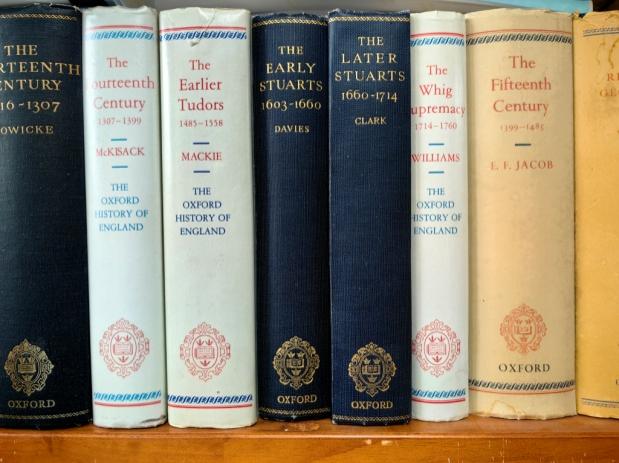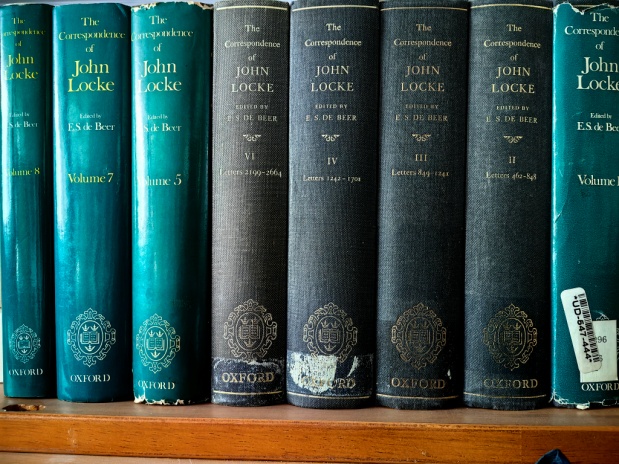Reading for the sake of moral education
--Professor Yu Wenjie gives academic lecture to Shanghai readers
On the occasion of the 26th World Book Day on 23 April 2023, Professor Yu Wenjie was invited by Shanghai Yangpu District Library and Shanghai People's Publishing House to give a lecture entitled "The Double Structure of Modern British Civilisation". More than 570 readers from Shanghai and home and abroad attended the lecture. Researcher Li Guanjie of the Centre for British Studies at Shanghai International Studies University chaired the lecture and engaged in a dialogue on related issues.
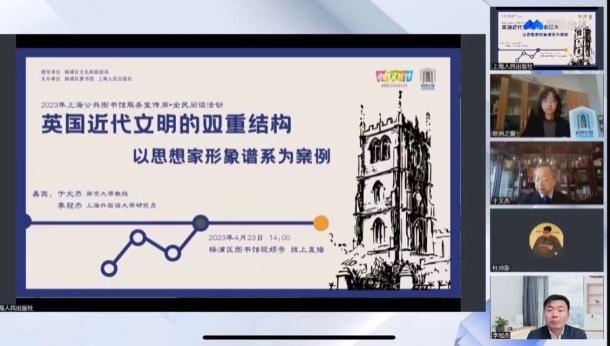
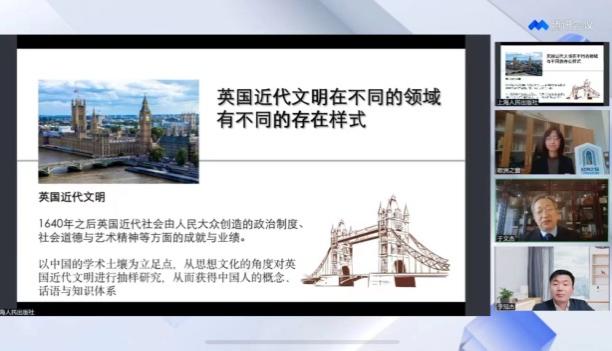
Professor Yu's lecture focused on the theme "The Dual Structure of Modern British Civilisation" and was divided into three parts: political institutional civilisation, social and moral civilisation and artistic and spiritual civilisation.
The first part of the lecture began with the American historian Barrington Moore's The Social Origins of Democracy and Despotism, which dealt with the dual structure of gradualism and colonialism in the civilisation of the British political system. Barrington Moore argues that Britain followed a path of development from violent revolution to gradualism; Professor Yu says that it makes sense to make this argument from the perspective of Britain's internal affairs, and that from the aftermath of the Civil War in 1640, especially after the Glorious Revolution, it was Britain that was less violent and less warlike internally; however, if we look at it from a foreign perspective, we can also say that Britain followed a path of development from violent revolution to the development of colonialism, there should be no denial;
The second part is a discussion of the dual structure of social and moral civilisation, particularly the interchange between statism and individualism in ethics, which often takes the form of unity of opposites, coexistence of contradictions and disintegration of opposites, as well as mutual inversion. Hobbes, with his boundless admiration for statism, ended up with no loyalty to the king and, as a brilliant Oxford graduate, with a body of writings and an elaborate system of thought, was not even a member of the Society for the Promotion of Nature in London; Locke was a thinker with individualist tendencies, but his father was able to fight in the army of the Protector. Locke was an individualist thinker, but his father was able to fight in the Lord Protector's army, and he returned to England from Holland with Mary's ships, so he was clearly nationalist; Mill was more formally concerned with balancing the interests of the state and the individual, but Isaiah Berlin said that it was Mill's heartfelt voice that spoke of the individual, and that was the real Mill; Professor Yu also used the emotional and marital problems of Mill and Ruskin to discuss the structural nature of freedom and ethics in modern England the structural contradictions and challenges of freedom and ethics in England;
In the third section Professor Yu uses artists as case studies to address the dual structure of the diversity of place in British culture and art and the tension of utilitarianism deep within the nation state. Professor Yu uses artistic thinkers such as Ruskin, Morris and Ashby, and archival documents from art families such as Wedgwood and Ritchie as case studies to discuss ideas about the diversity of local culture and art in modern British culture and art and the potential for colonial consistency. Ruskin's artistic socialist pursuits, Morris's artistic socialist theories and practices, Ashby's beliefs in artistic socialism, their sense of civilisation and artistic spirit were spread to many parts of the world, Wedgwood absorbed the best cultural elements of many peoples of the world, and there were successful cases of cultural engagement between Britain and Russia during the Ekaterina era, yet the results were very unfortunate. The development of Wedgwood's art was in crisis; however, when the English Ritchie family took the ideas of Maurice to the East, especially as the spirit of Chinese culture was used by Japanese national militarism, the culture and art of the best peoples soon became a tool of colonialism.
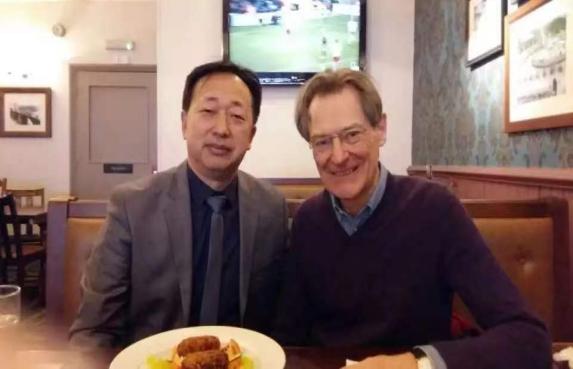
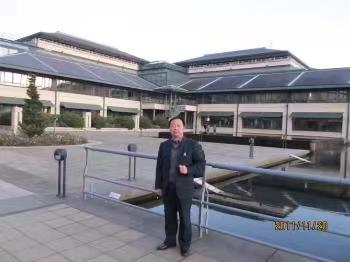
Professor Yu Wenjie and Research Fellow Li Guanjie also provided comprehensive answers to questions raised by the audience. In response to the audience's question as to whether consistency in language in the English-speaking world leads to consistency in national interests and worldviews, the experts concluded that the answer was basically in the affirmative, that language influences the formation of worldviews, but with its own variability in different countries, regions and times. Researcher Li Guanjie also spoke about his views in the context of his actual study trip to the Commonwealth countries in Africa. Professor Yu believes that we can only make our own contribution to the cause of Chinese-style modernisation and the building of a community of human destiny if we stick to our own national interests and critically absorb the various outstanding cultural elements of the world, including the British nation!

